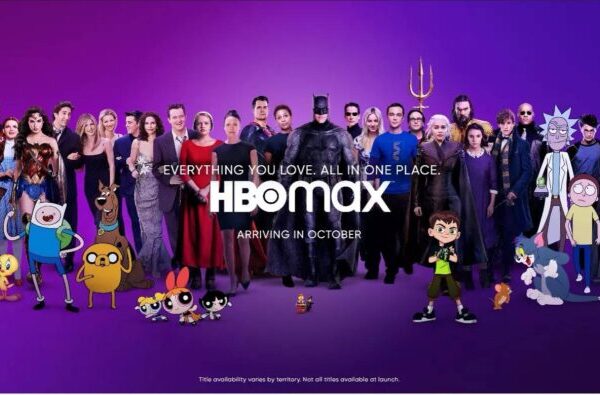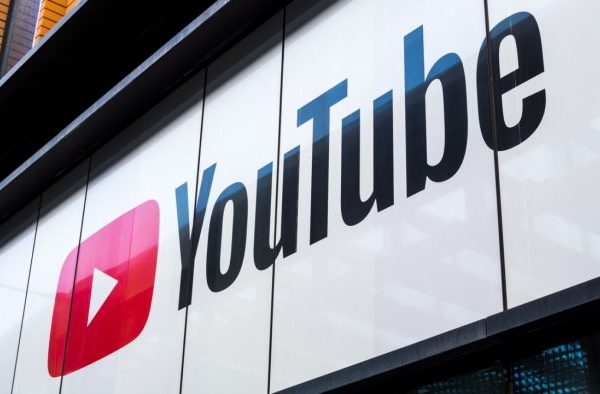Buying from TikTok ads is both safe and risky, and it depends on the specific ad you encounter. Some ads are trustworthy, providing a secure way to get the products you want. However, there are also scams on TikTok, so it’s important to know how to identify them. This post will help you understand how to make safe purchases from TikTok ads.
Is Buying from TikTok Ads Safe?
There’s no clear yes or no answer to whether buying from TikTok ads is safe. While TikTok features many reliable ads ensuring secure transactions, there’s also a risk of scams. Recognizing these scams is crucial, and safety depends on the ad and the product or service it promotes. This post is for those wanting to make secure purchases on TikTok.
How TikTok Manages Ads
Let’s clarify the concept first. Not all TikTok ads are harmful. With millions of sponsors, TikTok showcases a mix of trustworthy and questionable commercials. It’s a diverse landscape. Although we’ll focus on the downsides, it’s not a total criticism of the platform or its users. Now, let’s discuss how TikTok addresses harmful advertising. The platform aims to enhance brand and ad safety, considering core ads safe but working on the safety of in-feed ads. Crucial takeaways: TikTok doesn’t guarantee ad security, and it subtly acknowledges the existence of harmful ads. As a TikTok user, caution is advised when dealing with ads.
Different Types of TikTok Ads
When it comes to advertising on TikTok, there are various options to explore, each catering to different marketing needs. It’s essential to note that the availability of these ad types may vary based on your location.
1. TikTok In-feed Ads:
- Video Ads: Among the most common, these ads resemble regular TikTok videos. Advertisers create and share them via TikTok Ads Manager. When users engage with these videos, they are directed to a landing page or an app installation page, facilitating direct access to the promoted content.
- Spark Ads: Differing from typical video ads, Spark Ads amplify organic content from any TikTok account. They persist on your profile even after the advertising budget is exhausted, allowing for continued engagement, including duets and stitches.
- Image Ads: Featuring static images with brand or app details, Image Ads are accessible through the Global App Bundle and Pangle Placements. However, their availability may vary across regions.
- Playable Ads: Resembling mini-games, Playable Ads appeal to TikTok users interested in gaming. This feature is limited to specific countries.
- Shopping Ads: With the discontinuation of “Dynamic Showcase Ads” and “Collection Ads,” Video Shopping Ads have emerged. These videos enable viewers to shop directly from the content, targeting specific audiences on their For You Page (FYP). Additionally, Catalog Listing Ads promote shippable product collections, while Live Shopping Ads integrate product discovery during TikTok Live streams.
2. Carousel Ads:
- Exclusively available within TikTok’s news feed app, BuzzVideo, Carousel Ads allow advertisers to showcase up to ten images in a single ad, each accompanied by its caption.
3. Pangle Ads:
- Viewable through TikTok Audience Network, Pangle Ads offers another avenue for advertisers to explore.
While navigating the realm of TikTok advertising, it’s crucial to stay informed about regional availability and the evolving features within this dynamic platform. Whether leveraging the creativity of Spark Ads or the engagement potential of Playable Ads, TikTok provides a diverse array of tools for brands to connect with their audiences.
How Is TikTok Controlled?
You might find yourself questioning why TikTok permits ads and pondering the available resources in case of a scam. These are intricate topics. TikTok, being a Chinese firm, abides by Chinese laws due to its headquarters’ location, presenting differences from regulations in other parts of the world. Despite TikTok’s adherence to international agreements for global operations, there’s a scarcity of robust laws. Regulating organizations encounter limitations when tackling fraud on TikTok. An illustrative example is the U.S. government’s attempt to ban TikTok in 2020, where the stipulations proved unenforceable, and TikTok’s business practices in the United States remained unchanged. Similar legislative endeavors in other countries yielded comparable outcomes. Navigating the governance of IT enterprises abroad poses challenges, particularly in monitoring specific advertisements. In the event of falling victim to TikTok fraud, the avenues for legal recourse are notably constrained. You can still report the incident to your local authorities, or disputing charges with your card issuer remains another option. Occasionally, these entities might rectify the harm, leading to recovery, but more often, the intricacies of TikTok’s regulatory structure hinder a successful resolution. Opting to steer clear of fraud entirely is your optimal course, and gaining insight into the workings of various scams can be a valuable endeavor.
What Scams Are Common on TikTok? (5 Risks)
Returning to the original question, is it secure to make a purchase from a TikTok ad?
The response is still that sometimes it will be OK.
These are the most typical frauds you can anticipate on the app, and sometimes you’ll find yourself stepping into one.
Apps that “bait”
One of the prevalent and notably frustrating scams exploiting TikTok advertising operates as follows. When you come across a TikTok advertisement, it promotes a seemingly legitimate software available for download on the Google Play Store or Apple App Store. Intrigued, you click on the ad, and it redirects you to the relevant app store. Upon downloading the program, you realize that it diverges completely from your expectations.
In some cases, the downloaded software may be overtly malicious, bombarding your device with intrusive advertisements, or even locking your phone, demanding a ransom. On other occasions, the swapped software might appear less harmful initially but still carries the potential for harm. It may attempt to extract information from your phone, with user data being either sold to various tech corporations or circulated on the black market. The worst-case scenario involves the program stealing your identity or financial information.
The illustration with iMoney serves as a clear example. Before delving further, it’s important to note that several applications in the market bear the name “iMoney” or its variants. None of these apps, however, are implicated in this discussion. The focus here is on a specific app named “iMoney,” currently unavailable in your app store.
In this deceptive tactic, iMoney acts as the switch, while another app serves as the lure. Initially attempting to download the app promoted on TikTok, you find iMoney mysteriously appearing on your phone. Subsequently, iMoney inundates you with advertisements and, in some instances, negatively impacts your phone’s performance. This scenario vividly exemplifies a bait-and-switch app exploiting TikTok for marketing purposes.
False Product Advertising
While a bait-and-switch might appear similar to deceptive advertising, its nature is fundamentally distinct. This deception bears resemblance to the misleading marketing tactics commonly observed online. In the realm of TikTok advertising, the primary objective is to promote goods or services. These ads often feature endorsements from reputable sources such as CNN or notable individuals, adding a layer of credibility. However, the predicament lies in the fact that all these references and commendations are fabricated. No legitimate reviews from trusted sources support the marketed product.
The advertisements coax users to try the product without any genuine endorsements or reliable reviews. Unfortunately, upon trying these products, users often discover that they either don’t function as promised or, in some cases, fail to operate altogether. A prevalent example of this deceptive practice is observed in TikTok ads for diet pills. These ads frequently employ fake endorsements to advertise various diet medications. Regrettably, those who purchase these pills seldom experience the promised weight loss, and in certain instances, the substances may pose health hazards.
This serves as an illustration of how the existing global laws fall short in adequately protecting users. Similar fraudulent practices extend to other products, including the promotion of counterfeit items or genuine products with substantial markups not sanctioned by the original manufacturers.
Adult Material
The internet is rife with common frauds, and TikTok is not exempt, particularly when it comes to adult content scams. A prevalent tactic in this realm involves classic pornographic content fraud, where the scam demands credit card details under the guise of offering free material or other payment information. Despite assurances of free trial periods or other enticing promises, once you sign up, immediate charges are incurred. In some instances, rather than delivering promised content, pornographic material on TikTok may redirect users to spyware or other harmful software.
A straightforward TikTok scam to sidestep involves ads for pornographic material — they should not be trusted. This is a simple and secure generalization for users to keep in mind. Adding to the unfortunate aspects of these specific scams is the revelation that a significant number of images used to promote sexual material are stolen, contributing to the overall deceitful nature of these schemes.
Networking Scams
Scams related to networking often involve advertisements that claim to enhance your reach on platforms like TikTok. These scams may promise broader exposure or limit it specifically to the TikTok audience. The enticing pitch suggests an increase in followers or the utilization of resources to promote and expand your audience, a proposition particularly appealing for TikTok accounts linked to businesses. However, these promises often lead to untrustworthy outcomes.
Two common approaches characterize these scams. In the worst-case scenario, the scammers simply take your money and vanish, leaving you with no returns on your investment. In a slightly less dire situation, they may employ bots and fraudulent accounts to artificially boost your follower count. Despite the numerical increase in followers, none of them engage meaningfully with your content, rendering the supposed expansion practically worthless.
Social Engineering
While scams involving social engineering are occasionally linked to TikTok advertising, they are not the norm. In such instances, you might encounter an ad for another app or service promising interactive users. This age-old tactic remains effective, leading you to interact with either a fraudster or a bot. Through these interactions, they attempt to gather personal information, which can be used to steal your identity or sold on online marketplaces.
There are typically two directions these engagements may take on TikTok. Clicking on an ad may redirect you to a different communication platform, such as another app or a specific website for continued conversations. Alternatively, the communication may happen directly within the TikTok app, possibly with a bot. In either case, the ultimate goal remains the same – the extraction of your personal information for potential sale or identity theft.
Frequently Asked Questions
Are TikTok ads worth it?
The TikTok advertisements platform makes it worthwhile to develop excellent and easily accessible campaigns. Many companies, particularly smaller ones, are unsure if it is worthwhile to advertise on TikTok considering the effort involved. Setting up campaigns, producing genuine video content, and monitoring your analytics and statistics are simple tasks.





